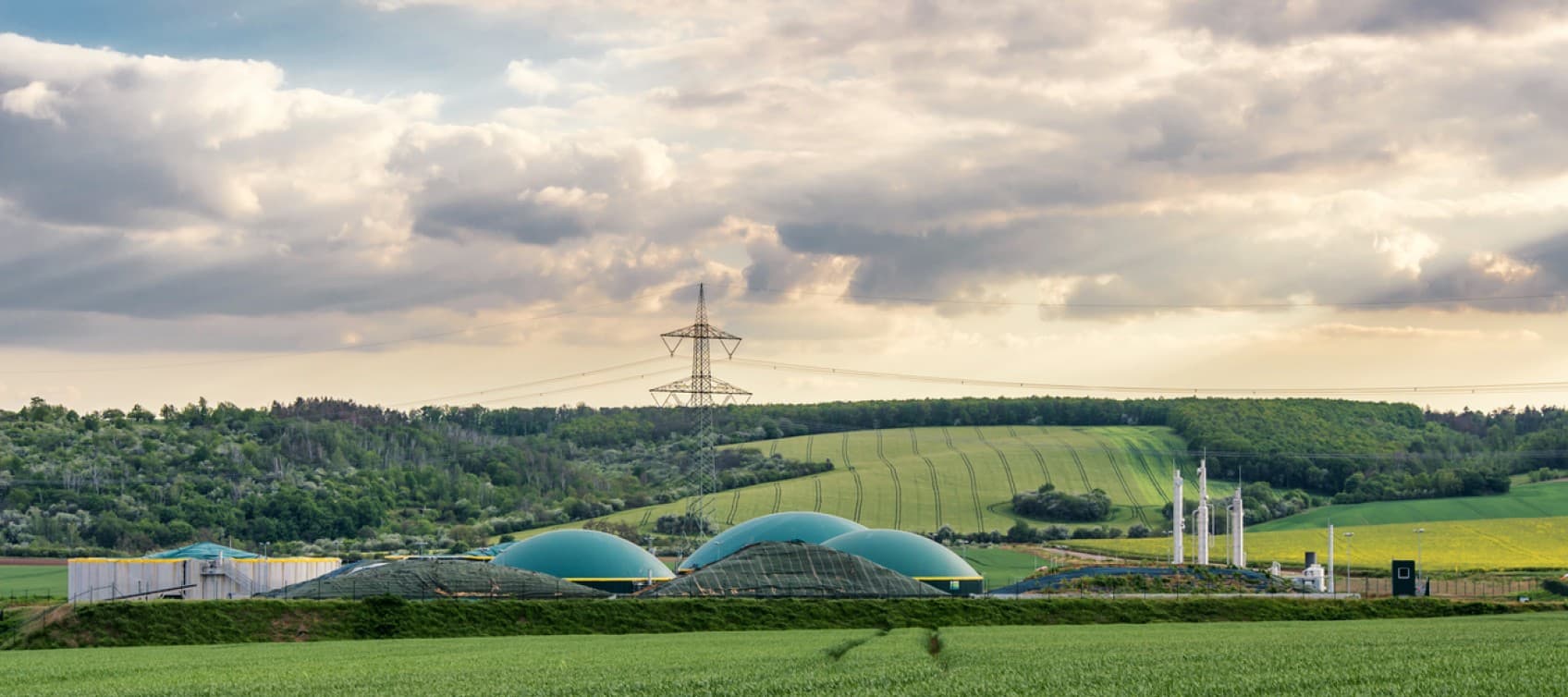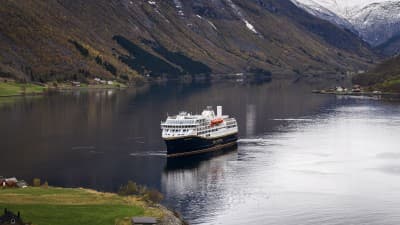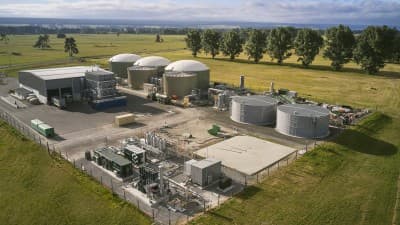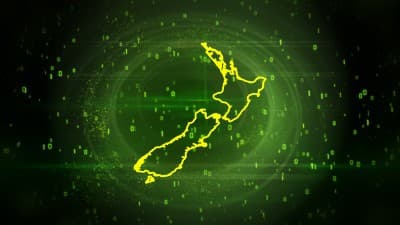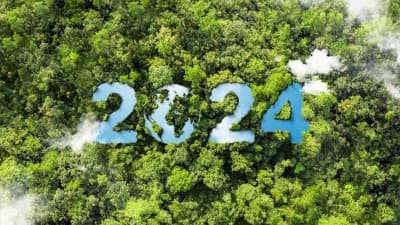What’s been happening in the world of renewable energy? We check out exciting news and developments from across the globe, as we work hard to fight climate change and create a low-emissions future for our world.
Green hydrogen lab to open in Lower Hutt
A new green hydrogen lab is about to open in Lower Hutt, thanks to GNS Science Green Hydrogen Research. Located at the National Isotope Centre, the lab will be researching ways to affordably produce hydrogen through electrolysis.
“At the moment green hydrogen is expensive,” GNS energy materials scientist Michelle Cook told RNZ. “We’re working on making it more efficient so we can get more hydrogen with less electricity. And making the components of the system that makes the hydrogen out of cheaper materials, as well.”
GNS is a Crown research institute that is working on the science of decarbonisation, sustainability and climate change resilience. Its energy work includes research on maximising geothermal resources and carbon capture, as well as its research into hydrogen for industrial processing and energy storage.
“Green hydrogen has a lot of potential uses,” Cook added. “Anywhere that you can think of that you use a fuel like petrol or natural gas, in theory you could use hydrogen.”
New Zealand’s greenhouses gases at lowest level since 1990s
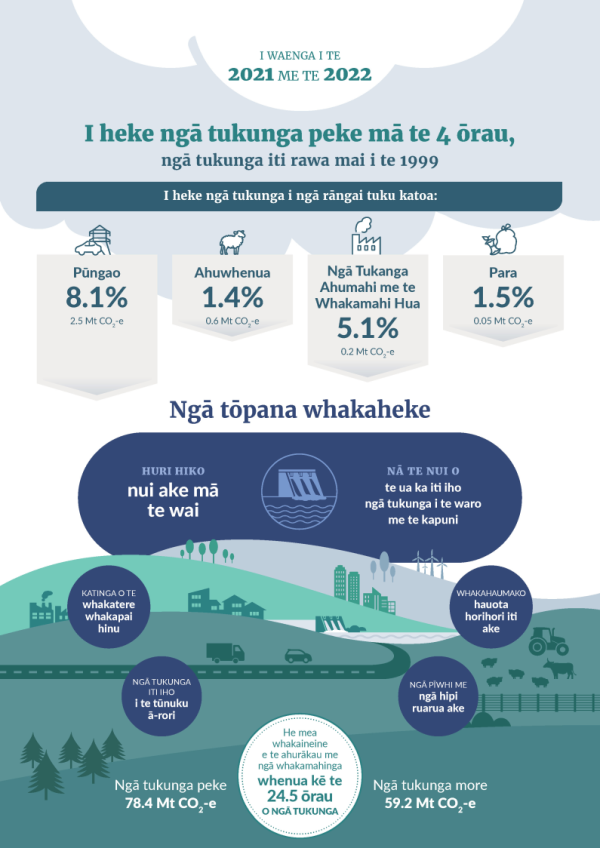
Image sourced from environment.govt.co
Thanks to renewable energy projects across Aotearoa, greenhouse gas (GHG) emissions have reached their lowest level since the 1990s, according to the Greenhouse Gas Inventory.
Emissions have fallen three years in a row, with the most recent drop (2021 to 2022) the highest ever recorded. The 4% drop equated to 3.4 million fewer tonnes of GHGs. Of that reduction, 2.5 million was attributable to lower emissions from the energy sector. That was in part thanks to a very wet year, which helped boost hydroelectric generation. In addition, the Marsden Point oil refinery closed, farmers used less nitrogen fertiliser, and there were more electric vehicles on our roads.
“Aotearoa New Zealand’s gross emissions peaked in 2006, and were relatively stable through to 2019,” wrote the Ministry for the Environment. “However, since 2019, emissions have been declining year on year… Emissions per capita were relatively stable between 1991 and 2005, however, from 2006 they have been declining, while population has continued to increase.”
Renewable energy reaches 30% global milestone
For the first time ever, in 2023 renewable energy provided more than 30% of the world’s electricity supply. That’s up from just 19% in 2000, showing the growth of the renewable energy sector.
The acceleration of solar has had a major part to play in reducing global reliance on fossil fuels, according to climate thinktank Ember. Twice as much solar energy was added to the grid as coal last year, and solar was the fastest-growing source of electricity.
“The decline of power sector emissions is now inevitable,” said Dave Jones, director of global insights at Ember. “2023 was likely the pivot point – peak emissions in the power sector – a major turning point in the history of energy. But the pace of emissions falls depends on how fast the renewables revolution continues.”
Fortescue officially launches its Arizona hydrogen hub
Australian mining and green energy company Fortescue has broken ground on its new hydrogen hub in Arizona, USA. The US$550 million project will eventually produce up to 11,000 tons of green hydrogen each year, which will be used to help decarbonise long-haul trucking across the US.
Set on a 158-hectare site, the facility is expected to create up to 2,244 direct, indirect, and induced jobs, while contributing as much as US$187.8 million to the Arizona economy.
Arizona Hydrogen is one part of Fortescue’s push toward renewable energy. It aims to use green hydrogen to decarbonise its substantial mining and shipping fleet – reaching zero emissions by 2030. It is also branching into green ammonia, which is relatively easy to transport, and into solar energy. Fortescue wants to decarbonise its iron ore operations through green iron and green steel, building a global portfolio of renewable energy projects.
To learn about how Clarus is supporting the transition to a net carbon neutral New Zealand, visit Clarus - Future of Energy.

